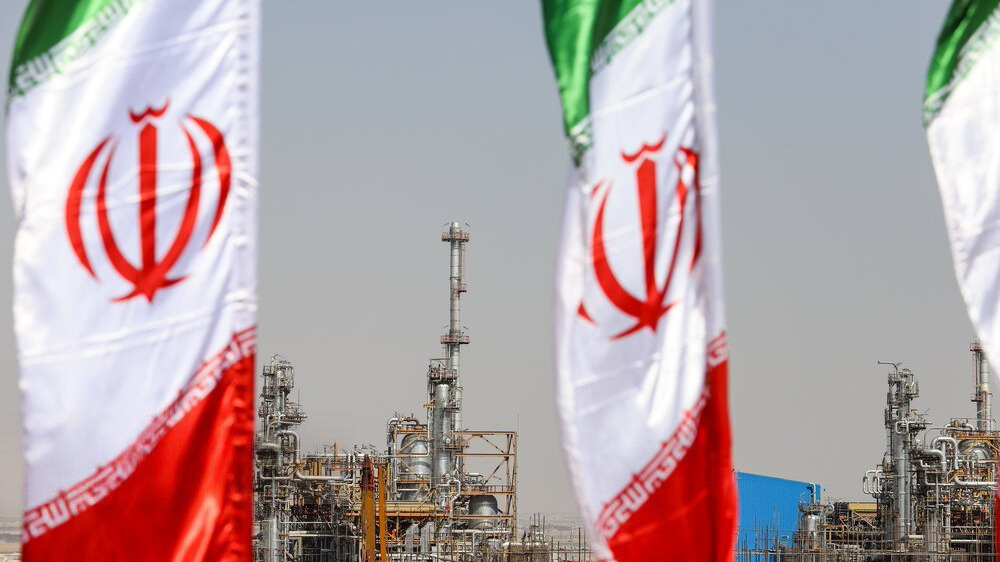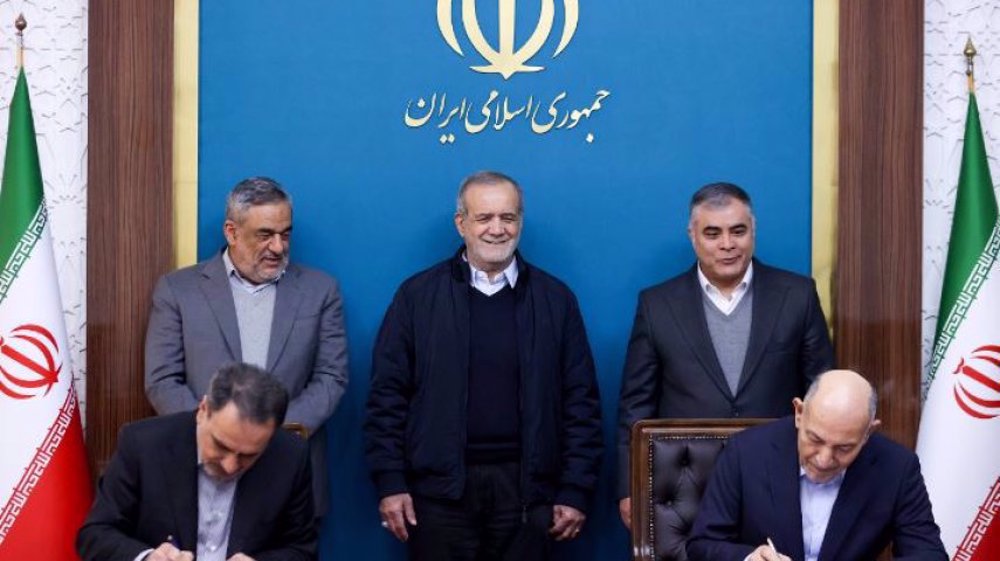Iran signs deals to repair Syrian power grid
Tehran has signed deals worth "several hundred million euros" with Damascus to repair Syria’s power grid in the Aleppo city and the provinces of Latakia and Dayr al-Zawr.
Syrian Electricity Minister Mohammad Zuhair Kharboutli traveled to Tehran as his country is looking to friendly states to help rebuild the country after more than six years of war with foreign-backed terrorists.
Syria’s civilian infrastructure has been battered under the ferocious conflict but Kharboutli said Tuesday the government is working relentlessly to restore the power system and that Iranian companies will have a role in rebuilding Syria.
The reconstruction of the country comes amid the Syrian army making steady advances in recent months and taking back cities and towns from terrorists.
"We are glad that good news is coming out about the situation in Syria theses days, and the terrorists are facing defeat and complete elimination," Sattar Mahmoudi, Iran’s caretaker energy minister, said during the signing ceremony.

The contracts include building a power plant in the coastal province of Latakia with a capacity of 540 megawatts and restoring the main control center for Syria’s electricity grid in the capital Damascus.
Iranian companies will also rehabilitate a 90-megawatt power station in Dayr al-Zawr province, where the Syrian army has made swift advances against Daesh terrorists in recent days, and another in the Homs province.
Two contracts were signed, including for Iran to supply power to Aleppo city, which the Syrian military and its allies fully regained last year in a major blow to terrorists.
The memorandum further involves the establishment of five gas turbines, each with a capacity of 125 megawatts in in Baniyas, SANA news agency reported.

Tehran has already assured Syria to expand its cooperation to construct water and sewerage facilities in the Arab country.
Mahmoudi said the capacities of Iranian companies in production, distribution and transmission of power and power plant equipment are unique in the region and many Iranian products are able to compete with the world's leading brands.
"The message of Iran's Ministry of Energy is to restore light to the houses of the Syrian people, while the terrorists and their supporters have had no message other than darkness and terror for the Syrian people in the past few years," he said.
In May 2013, Iran agreed to provide Syria with a $3.6 billion credit line for imports of goods and commodities and implementing civilian projects.
Iranian firms are already involved in a series of electricity generation projects worth $660 million in Syria, according to Energy Ministry officials.
A plan has been mooted for exports of Iranian electricity to Syria which would hook up Iran’s national grid with those of Iraq and Lebanon, creating the biggest power network in the Islamic world.

Damascus was a major ally of Tehran during eight years of the former Iraqi dictator Saddam Hussein’s war on the Islamic Republic in the 1980s and Iran now feels obliged to return the favor.
"During these years, the Iranian nation and the government have stood with the Syrian people in the worst conditions, and we certainly will not leave the Syrians alone in the difficult conditions of reconstruction," Mahmoudi said.
In January, the two countries signed several agreements during a visit by Syrian Prime Minister Imad Khamis to Tehran, under which the Islamic Republic would build a mobile service operator in the Arab country.

Under the deals, Syria would grant a license to Iran to operate the Arab country’s third mobile service provider and allow the Islamic Republic to set up a petrol terminal on 5,000 hectares of land.
Syria would also give Iran 5,000 hectares of farmland and commission the operation of phosphate mines in Sharqiya and a port in the Arab country to Iranian companies, IRNA reported then.
Khamis traveled to Tehran with a large business delegation, with Iran’s Vice President Es’haq Jahangiri saying the visit marked "a new page for economic activities between the two countries."
‘The Voice of Hind Rajab’ receives Oscar nomination
VIDEO | Foreign-backed terrorism in Iran
US-backed riots suffered 'humiliating' defeat in Iran: Yemeni leader
Pezeshkian: ‘Unholy rage’ fueled by Iran’s enemies after June defeat
Iran condemns Israeli demolition of UNRWA headquarters in occupied al-Quds
Denmark reasserts Greenland sovereignty as Trump claims ‘total access’
Iran’s political legitimacy comes from ballots and popular will, not foreign powers
VIDEO | Press TV's news headlines










 This makes it easy to access the Press TV website
This makes it easy to access the Press TV website